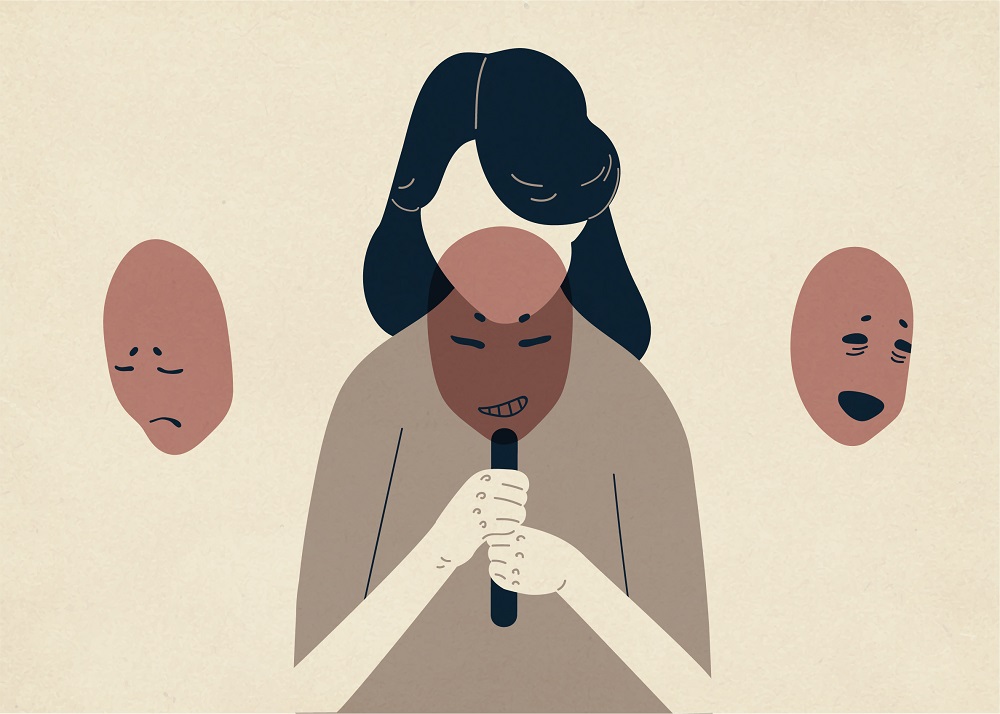Are we good or bad by nature? Hopefully this crisis will tell
In times of crises, it is often the social scientists who pay extra attention. This is because a crisis offers them a real-life experiment and an exceptional insight into human nature. A recurring theme in their analyses is whether humans are naturally good or bad. Despite many years of heated debate over this question, there still does not seem to be a clear response to it. Can this crisis give us the redemptive answer?

Empty shelves, shopping carts bulging with toilet paper and people fighting for the last pack of pasta. At first glance, this seemed to be the primary reaction of people in this crisis. However, the moment we blinked with our eyes we saw there was more than only people pursuing their own interest; community spirit was coming through, which meant people helping their vulnerable neighbors to do groceries or putting a teddy bear in front of their window in order for children to go play outside. So far, this pandemic has not made it any easier to answer our question.
In search of our moral core
The search for the moral core of humans is one that commenced centuries ago. Therefore, it has known many supposed discoverers. A well-known theory in this field is the so-called ‘veneer theory’. This theory assumes that the moral civilization of humans consists only of a thin layer of veneer. As soon as this layer falls off due to a crisis like this, our cruel and selfish nature would emerge.
After years of consenting opinions, the status of the veneer theory began to stagger. One of the first that questioned this idea was the prominent primatologist Frans de Waal. On the basis of his research on primates, he came to the conclusion that our nature is in fact marked by feelings of empathy and consolation, the building blocks of morality.
Recently, historian Rutger Bregman has also sketched a more hopeful picture of humans with his book Humankind: A Hopeful History. According to Bregman, we are naturally capable of doing both good and bad. He makes the comparison with a good and a bad leg, it just depends on which one we train.
“Whether a crisis affects human nature positively or negatively has not yet been settled in science”
It hence seems we are slowly shifting from a negative outlook on human nature to a more positive one. For this reason, the current world crisis appears on a rather interesting moment. It can show us whether the veneer theory holds any truth or if we should indeed trust each other more because of our intrinsic goodness.
Olga Stavrova, social psychologist at Tilburg University, thinks however that we should lower our expectations. “Whether crisis, threats and scarcity affect human nature positively or negatively has not yet been settled in science.” This means that also this crisis does not have the potential to come up with a decisive answer, simply because there is no clear leaning to one side. Part of the explanation for this, is the many psychological processes that are at play.
Scarcity
Selfish behavior during a crisis is mostly caused by scarcity. Stavrova: “There is evidence that scarcity and the increased competition for resources render people less prosocial.” We saw this happening with all the people that were hoarding when the virus just hit Europe. Apparently, we easily switch to survival mode when we get the feeling that our existence is being threatened. As soon as the threat abates and the panic passes, we start to look out for others again. This is what is happening now.
Since we cannot speak of any real scarcity at the moment, we should ask ourselves if we are in the midst of a real crisis. Maybe the veneer layer hasn’t completely worn off yet? “Indeed, an average consumer in the Netherlands has probably not experienced actual scarcity during the coronavirus crisis”, Stavrova says. “However, many people lost substantial shares of their incomes, cannot exercise their profession and don’t know how to make a living anymore.” So although there is no scarcity for society as a whole, this can occur on a personal level.
Selfish states
Not only on an individual level, but also on an international scale we can see selfish tendencies surfacing. By closing its borders, it becomes clear again that the primary task of each country is to take care of and protect its own citizens. Yet, one can wonder if this is an act of selfishness. In the end, it only comes at the expense of itself. This certainly applies to countries that thrive on tourism.
A better example can be found within the EU. Some northern European states, spearheaded by The Netherlands, didn’t want to pay the debts of the southern states by establishing a so-called ‘solidarity fund’. They argued that it was not their fault that countries like Italy and Spain came short of money and thus they could not be held responsible for it. Regardless of the awkward attitude of the northern countries, there is something to be said for it, considering the fact that the southern states have accumulated high debts under the assumption that the EU would rescue them if needed.
“Groups tend to make more selfish, less prosocial decisions than individuals”
Perhaps, all this egoistic behavior of states is a representation of us as individuals and is that what happens at the international stage a magnification of our personal behavior. Stavrova does, however, not think this is the case. “Governmental decisions are often made within groups – with counselors and advisors – and are thus susceptible to certain group processes. Studies have shown that groups tend to make more selfish, less prosocial decisions than individuals.” Thus, she thinks it is fair to say that there is less solidarity at the inter-state level than between individuals.
Still, we should not be too pessimistic about what happens between all those countries. Because, in the end, they have agreed upon the solidarity funds allowing the hardest hit EU countries to apply for financial support. Moreover, countries have been sending medical equipment and personnel to each other to help tackle the virus. It thus seems that solidarity is winning on an international level.
The real cynic can, on the other hand, always find traces of selfishness below this layer of solidarity. “People that hold a generally negative view of human nature are more likely to search for signs of selfishness in others”, Stavrova notes. “There are studies that show that people, on average, prefer egoistic explanations of others’ prosocial behaviors.” The cynical reflex to countries offering support to others would be that they do it for their own benefit. After all, they are trading partners at the same time.
Humanity united
Generally speaking, we can see a clear surge of unity and solidarity during this period. It is unique to see how most people are following up orders of governments to stay inside as much as possible and to cancel events, all for the sake of beating the virus. It looks like we can effortlessly put our hands together when something bigger is at stake.
For Stavrova, this behavior of humans is all but a surprise. “Cooperation between humans seems to be an intuitive and natural thing. This has been tested in situations in which people have not been given much deliberation time, which causes time pressure. In such situations they tend to cooperate rather than defect.” Hence, we could conclude that we have a natural tendency to cooperate. It is also very likely that this has brought us to the dominant position we are in today as a species.
“Shared adversity might make people believe that they have a common enemy”
The movement towards each other can also be understood by the emergence of a common enemy that causes a kind of ‘we-are-in-this-together feeling’. “Shared adversity might make people believe that they have a common enemy”, Stavrova tells. “This results in a strengthening of the sense of community and solidarity.” By having the same enemy – the virus in this case – it becomes easier to see interpersonal similarities. They cope with the same problems as we do, causing us to find common ground and identify with them. The discourse changes form ‘them’ and ‘us’ to only ‘us’.
Contagious behavior
What this crisis has shown us so far, is more signs of solidarity than of selfishness. At the same time we shouldn’t completely write off the veneer theory, since real scarcity and competition have not yet occurred. Due to the fact that also this crisis cannot really offer us the perfect unequivocal answer we hoped for, we should maybe just accept our double-sided nature. We can be both selfish and solidary, it just depends on what situation we are in.
This does not simply imply that we should just surrender ourselves to the environmental factors around us. We might not know what our moral core looks like, but according to Stavrova there is one thing we do know. “Other’s behavior is a very powerful factor shaping our own behavior; it is contagious. Both acting in a solidary way yourself as well as spreading the information about other’s prosocial behavior in the crisis might be a way to promote these behaviors and undermine selfishness.” Therefore, leading by example is now more important than ever.







